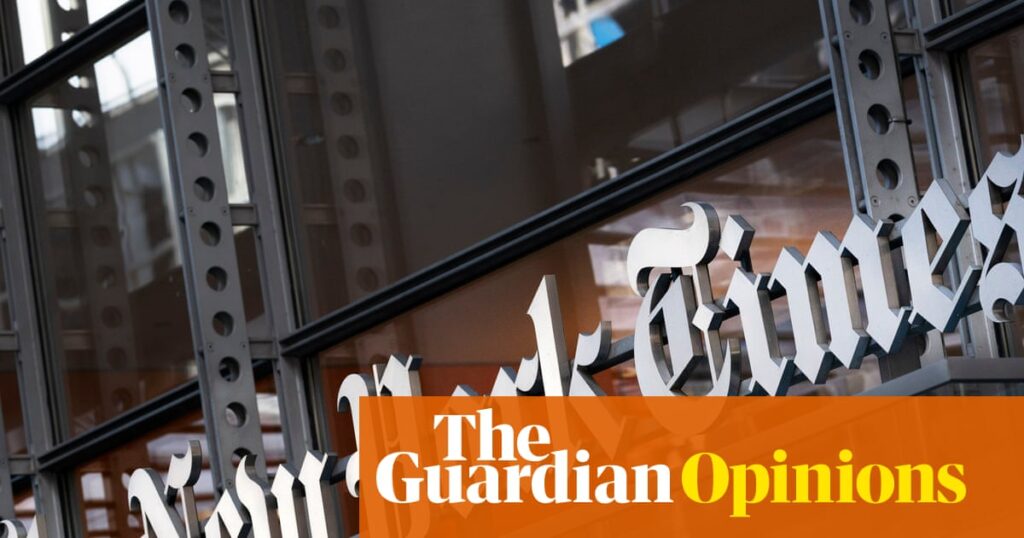
Donald Trump’s recent lawsuit against the New York Times has sparked significant controversy, not for its legal merits, but for its potential implications on press freedom and democracy. The lawsuit, which lacks specific allegations of libel, is perceived by many as yet another attempt by Trump to silence media criticism through legal intimidation.
In his lawsuit, Trump accuses the New York Times of being “one of the worst and most degenerate newspapers in the History of our Country,” alleging it serves as a “mouthpiece” for the Democratic Party. This follows a pattern of legal actions by Trump against media organizations, including a previous lawsuit against the Wall Street Journal’s parent company for reporting on his alleged birthday message to Jeffrey Epstein.
The History of Trump’s Legal Battles with the Media
Trump’s history with defamation lawsuits is well-documented. In the past, he has sued ABC and its host George Stephanopoulos for misreporting the outcome of a civil suit brought by E. Jean Carroll. ABC settled for $16 million. Similarly, CBS was sued for allegedly editing an interview with Kamala Harris, resulting in another $16 million settlement.
These lawsuits are not new tactics for Trump, who learned the art of legal intimidation from Roy Cohn, a notorious legal strategist. In the 1980s, Trump sued Chicago Tribune architecture critic Paul Gapp for $500 million over a critical review of Trump’s proposed skyscraper in Manhattan. The lawsuit was dismissed as it involved protected opinion.
The Legal Standard for Defamation
The legal standard for defamation of a public figure was established in the 1964 Supreme Court case New York Times Co. v. Sullivan. This landmark decision requires public officials to prove that a false statement was made with “actual malice”—knowledge of its falsity or reckless disregard for the truth. This standard is designed to protect free speech and robust debate on public affairs.
“Under this standard, there’s no chance Trump will prevail in his latest lawsuits against the Times or Wall Street Journal. Nor would he have won his lawsuits against ABC and CBS, had they gone to trial.”
The Impact on Media and Democracy
Trump’s lawsuits are seen as part of his broader strategy to influence public opinion rather than achieve legal victories. Settlements from ABC and CBS are viewed by Trump as vindications of his grievances, while his lawsuit against the New York Times serves to highlight his longstanding issues with the paper.
These legal actions also serve as a warning to media organizations, suggesting that Trump could disrupt their operations. Defending against such lawsuits is costly, requiring significant resources and potentially impacting the media’s ability to operate freely.
Moreover, when a lawsuit is filed by a former president, the stakes are higher due to the potential for regulatory retribution. This was evident when CBS’s parent company, Paramount, faced delays in a business deal until the lawsuit was settled.
The Chilling Effect on Press Freedom
The threat of legal action by Trump has a chilling effect on media criticism. It raises concerns about self-censorship and the potential stifling of critical reporting. This is particularly troubling in a democratic society where a free press is essential.
“We don’t know how much criticism has been stifled to date, but it’s suggestive that a CBS News president and the executive producer of 60 Minutes resigned over CBS’s handling of the lawsuit and settlement.”
Proposed Solutions and Future Implications
To counteract the potential dangers posed by Trump’s use of defamation law, two key measures are suggested. First, the New York Times v. Sullivan standard should be stricter when a president sues a media outlet. Instead of proving “actual malice,” it should be required to demonstrate that the false statement materially impaired the president’s ability to perform official duties.
Secondly, antitrust authorities should prevent large corporations or wealthy individuals with diverse business interests from acquiring major media platforms. The risk is that financial interests could outweigh the public’s right to know, compromising journalistic integrity.
“Democracy depends on a fearless press. Trump and the media that have caved in to him are jeopardizing it and thereby undermining our democracy.”
As the political landscape evolves, these issues remain critical. The outcome of Trump’s legal battles and the media’s response will have lasting implications for press freedom and democratic principles. If Democrats regain control of Congress, legislative action may be necessary to safeguard these values.







